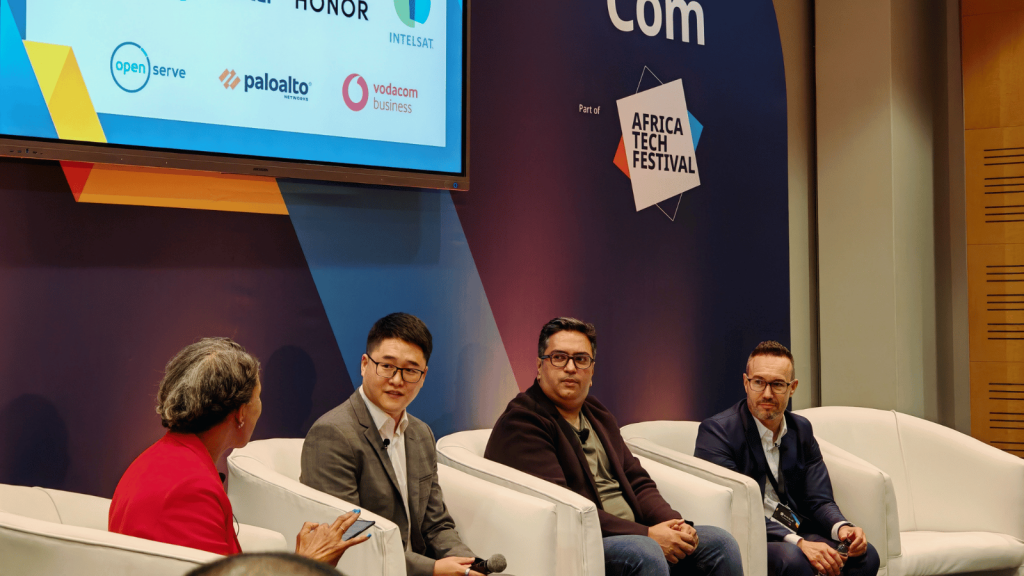What does the future of the smartphone industry entail? If you guessed AI, then you aren’t the only one.
The 27th Africa Tech Festival kicked off earlier this week at the Cape Town International Convention Centre. Comprising an estimated 15,000+ attendees, 400 speakers, and 300 exhibitors across three days, the first day saw Honor hold a panel discussion during AfricaCom: Telcos of Tomorrow and as part of its wider showcase at the event.
The discussion, chaired by CNBC Africa business anchor Zanele Morrison, included Honor South Africa CEO Fred Zhou, Cell C CEO Jorge Mendes, and Vinod Nenwani, head of Android Partnerships, North and South Africa at Google. The quartet discussed the future of the smartphone industry and the role AI is playing in that future.
AI takes smartphones into the future

Unless you’ve lived in a cave for the past two years, you’ll know that AI is the hot new thing. Just about every company has some sort of AI-powered offering, product, or service and the smartphone industry is no exception.
Smartphone manufacturers are forever in pursuit of wonderful things like ‘sustained growth’, ‘digital inclusion’, ‘unlocking potential’, and ‘accelerating connectivity’ and Tuesday’s panel reckons smartphone AI can help with that.
According to statistics cited by Honor, Q1 2024 was the first time smartphone sales surpassed feature phone sales in Africa. The quarter also bore substantial growth for the industry with smartphone shipments growing by 24% in Africa compared to the first quarter of last year.
But just selling more devices won’t do much more than fluff up the same few bank accounts. So where does AI fit in? According to these panelists, smartphones with AI capabilities represent “a new era” in mobile technology.
“Technology has the power to change lives, and the amazing capabilities of smartphones [allows] us to use it for education and driving the growth of the digital economy,” said Mendes.
However, all three panelists agreed that there is a need for responsible AI use and regulation to balance innovation with safety to ensure transparency. The technology also needs to be made more inclusive and accessible.
“As responsible players, we can ensure that the technology reaches even the most underserved communities, providing opportunities for economic empowerment and inclusion,” explained Nenwani.
Zhou made a point of explaining that Honor’s AI offerings won’t remain reserved for its flagship devices. The brand plans to bring on-device AI features to its entire device portfolio.




